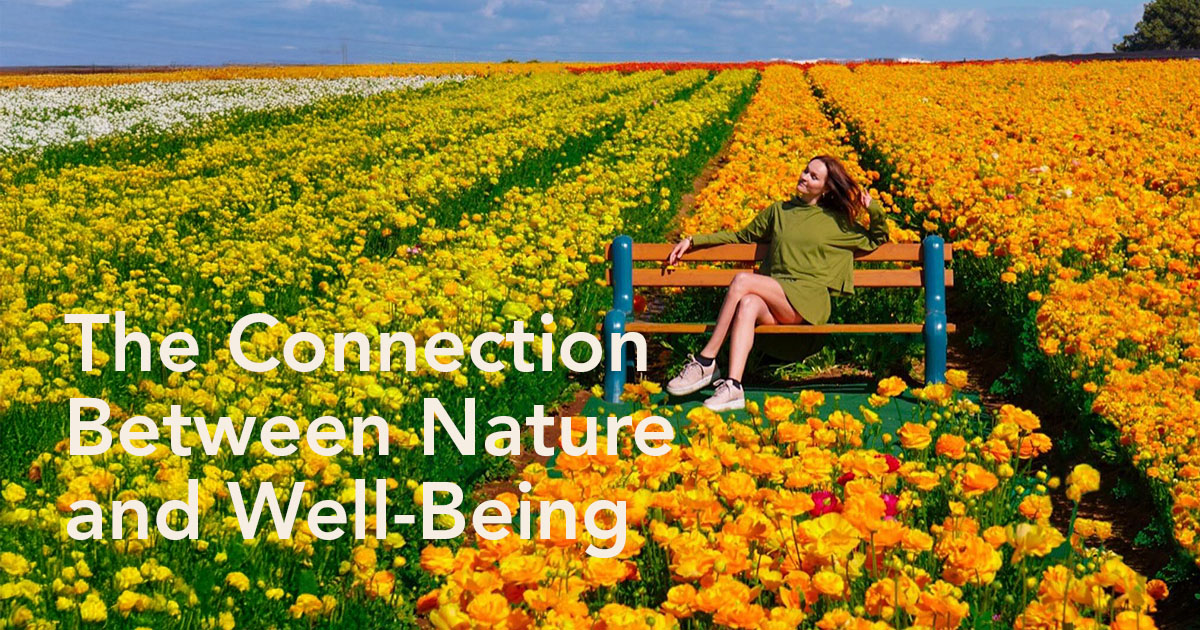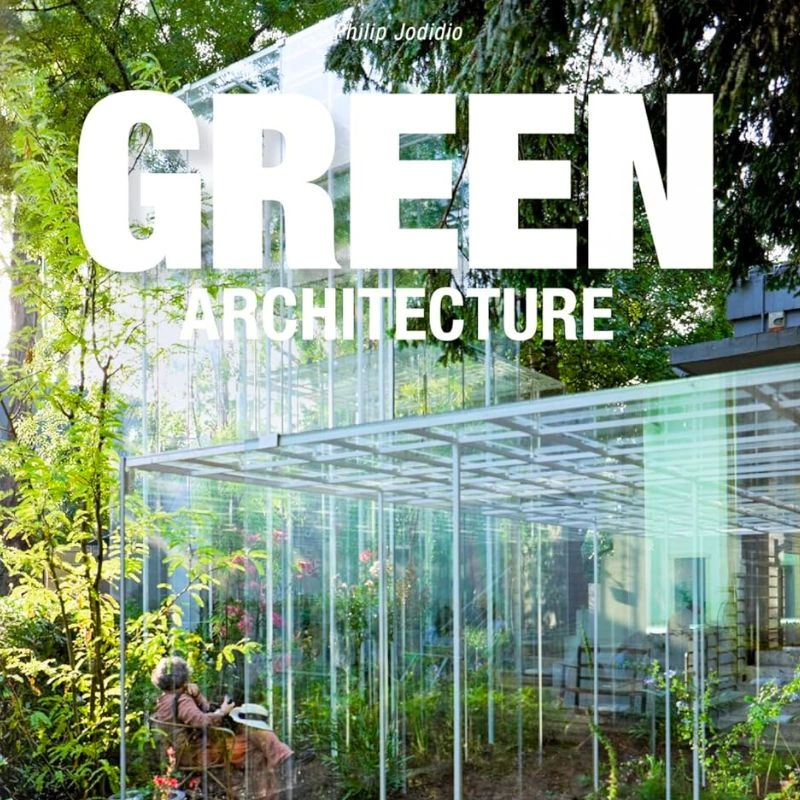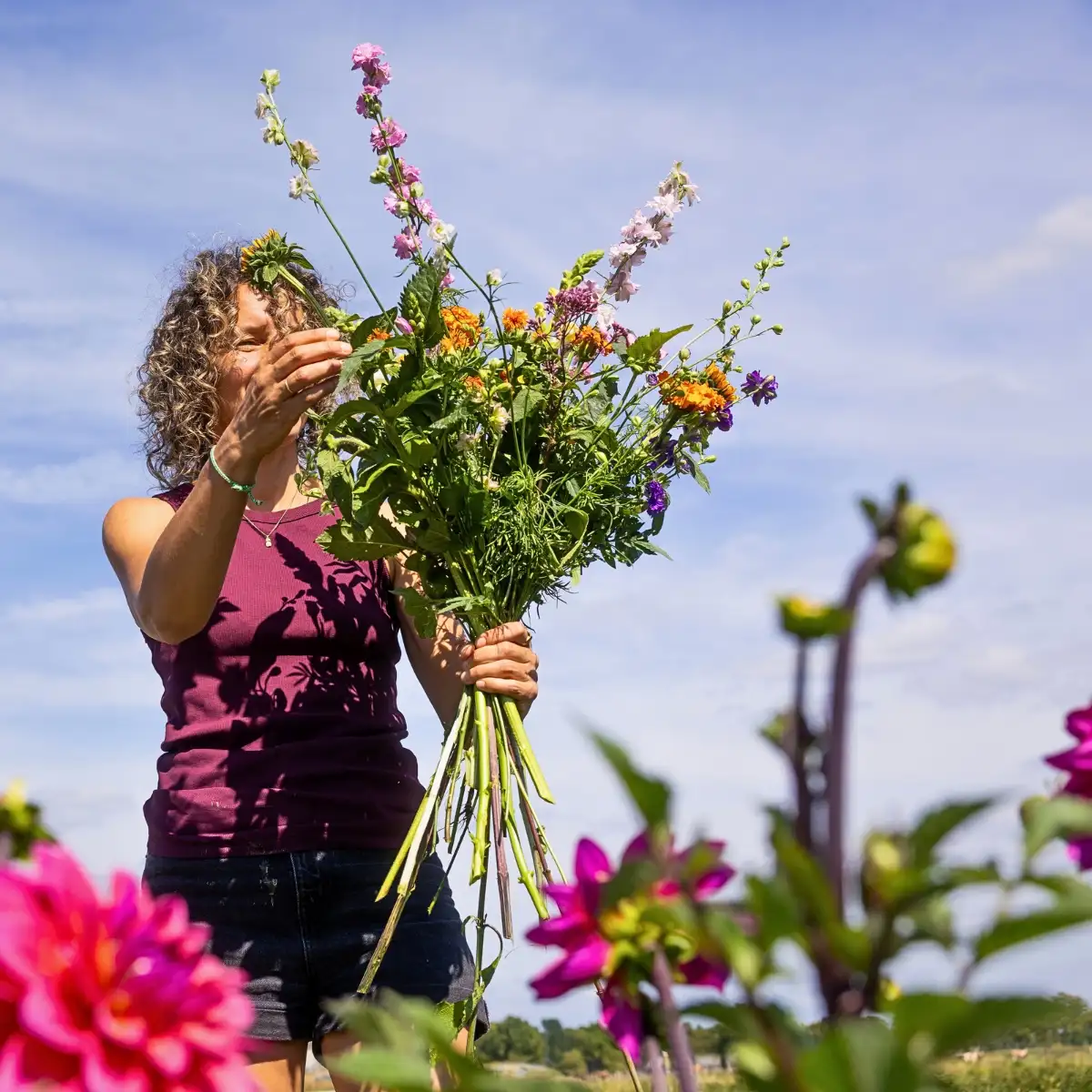Flowers and plants have been an integral part of human existence for centuries. They serve not only as a source of sustenance and medicine but also as symbols of beauty and love. Yet beyond their aesthetic appeal, research has shown that engaging with flowers and plants can significantly impact our emotional well-being.
They lead to a much happier and more contented life, as demonstrated by scientific evidence and anecdotes which illustrate just how flowers and plants highlight the resonant connection between nature and human happiness and well-being.
The Science of Floral Happiness
Scientific studies have consistently revealed that being in the presence of flowers and plants induces positive emotions and reduces stress levels. When we see colorful blooms or lush greenery, our brain releases dopamine, which is the feel-good neurotransmitter that is associated with pleasure and happiness.

Additionally, exposure to nature has been shown to lower cortisol, the stress hormone, leading to a more relaxed state of mind. This symbiotic relationship between humans and the natural world dates back to our evolutionary history when our ancestors depended on plants for survival.
In the modern day, research has, accordingly, always supported the idea that spending time with flowers and plants can positively impact our mental and emotional well-being and that integrating nature into our daily lives, whether through indoor plants, outdoor gardens, or even just taking a walk in a park, can contribute to a happier and more fulfilling life. It's no wonder biophilic designs are quite a hit nowadays.
Flowers and Plants in Mood Enhancement
Specific flowers have been found to have unique effects on our emotions. For instance, the scent of lavender has been shown to promote relaxation and alleviate anxiety. Jasmine, with its sweet and soothing fragrance, can enhance mood and increase feelings of happiness.
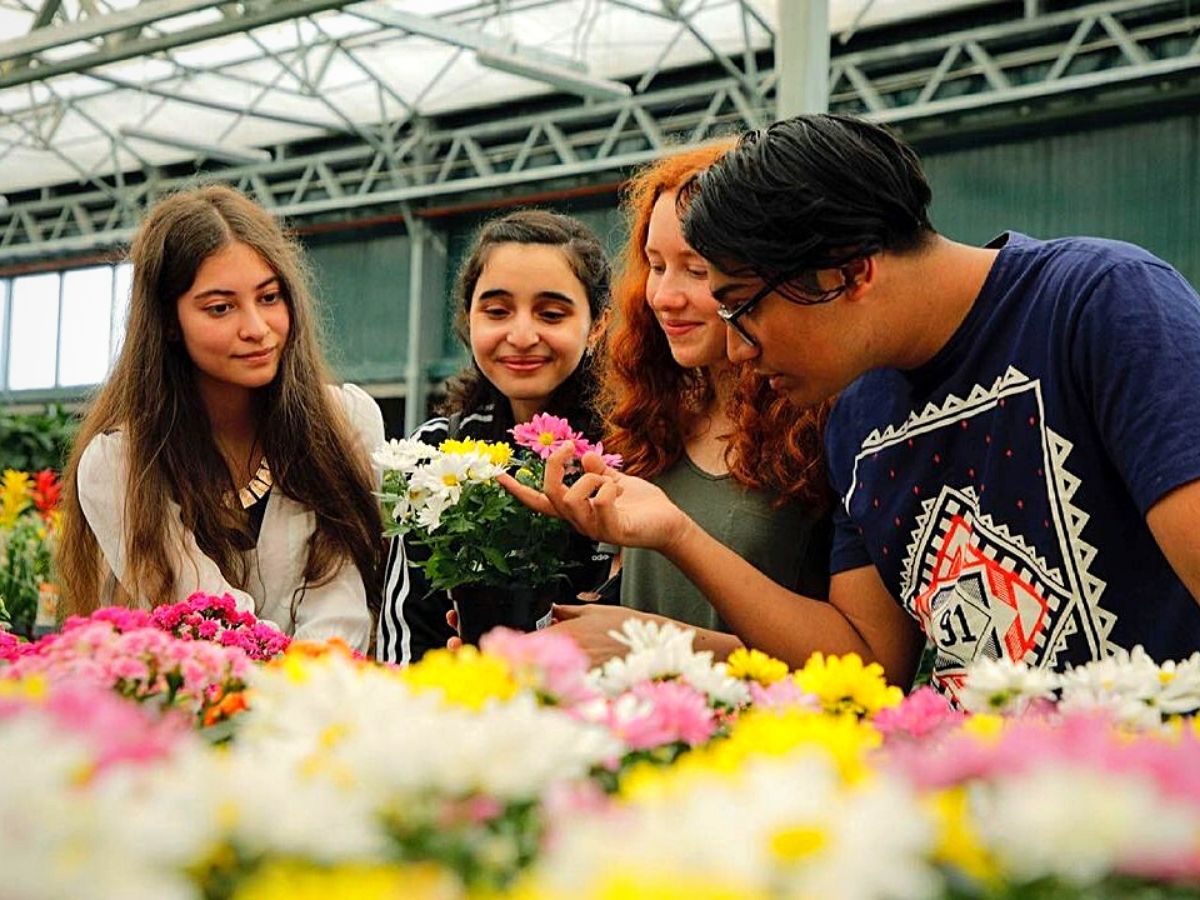
Moreover, the vibrant hues of flowers, such as sunflowers and daisies, have been known to have a direct impact on our emotions as they promote feelings of positivity and happiness. Think about that lazy stroll through a field of lush greenery and flowers of different colors, shapes, and types, each releasing its sweet scent.
Plants and flowers, therefore, have therapeutic powers which we can harness for our healthy well-being and happiness. But how can we harness these powerful qualities of plants for our own good?
Through Healing Gardens
Horticultural therapy, a practice that uses plants and gardening to improve mental and physical well-being, has gained popularity in recent years. Healing gardens, carefully designed with a variety of plants, offer a serene environment for patients to reduce stress and promote recovery.

These therapeutic spaces have been successfully integrated into healthcare settings, such as hospitals and rehabilitation centers, to facilitate emotional healing and speed up the recovery process.
Indoor Plants and Productivity
Beyond outdoor gardens, indoor plants have proven to be equally beneficial for emotional well-being. The presence of greenery in workspaces and homes fosters a sense of tranquility and creativity. There are numerous studies that indicate that having plants indoors can significantly improve our focus, boost productivity, and reduce fatigue and headaches.

The Art of Flower Arrangements Like Ikebana
Ikebana, the traditional Japanese art of flower arrangement, not only honors the beauty of flowers but also embodies a deep philosophy that contributes to our well-being and happiness in return. The deliberate placement of each stem and leaf represents a balanced relationship between humanity, nature, and space.
For a more fulfilling and contented being, engaging in flower arrangements like Ikebana can be a meditative experience, promoting mindfulness and a sense of connectedness with the environment.
Flower Therapy and Emotional Expression
Flower therapy is a holistic practice that focuses on the emotional and psychological benefits of flowers and their ability to facilitate emotional expression. Sending someone flowers or receiving beautiful blooms is known to uplift spirits, communicate love, and provide reassurance and comfort during difficult times.
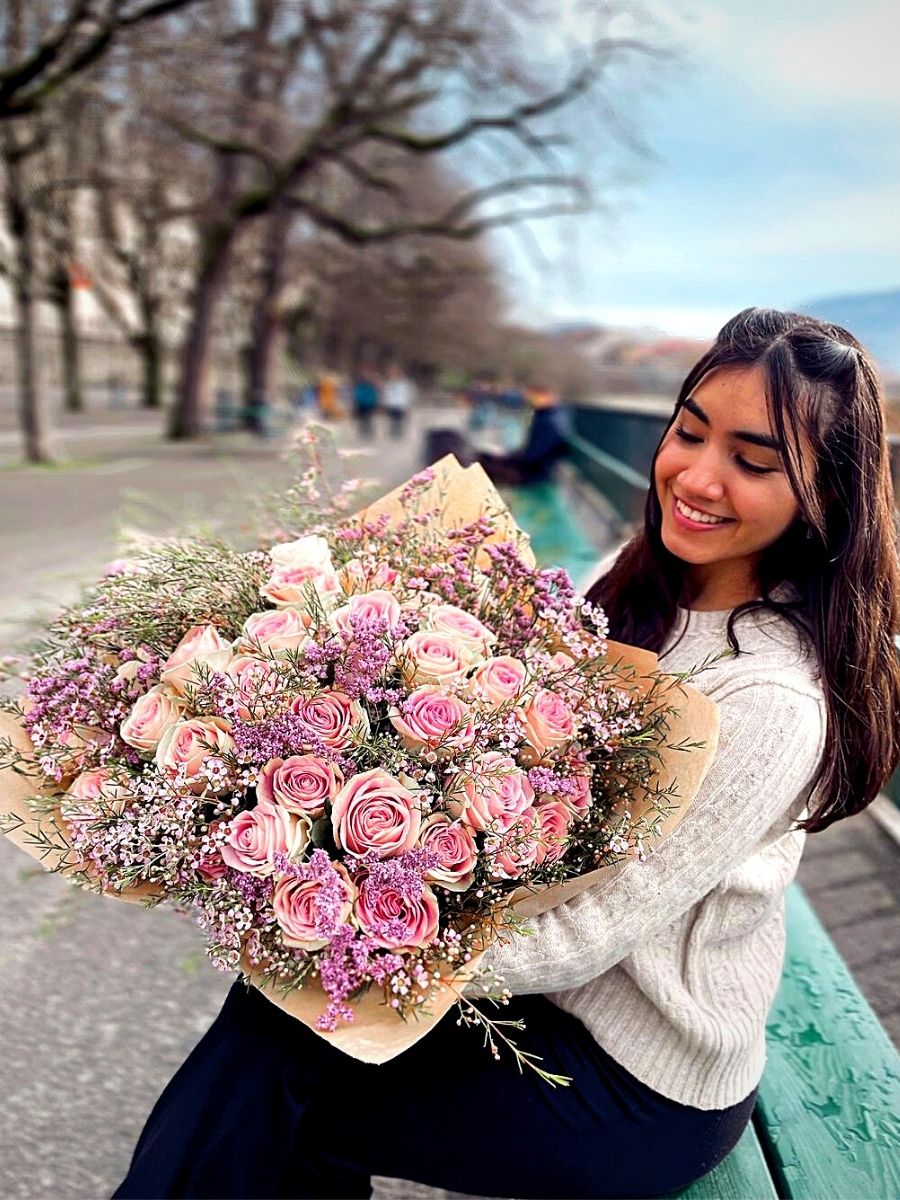
This is a therapeutic approach that acknowledges the significant impact of flowers on human emotions and which in turn fosters healing and personal growth, equating to happiness.
The Relationship Between Plants and Flowers and Social Well-Being
The relationship between plants and flowers, and social bonds, is multifaceted and deeply ingrained in human culture and history. Flowers and plants have, since time immemorial, played significant roles in human social interactions, communication, and the expression of emotions.
And definitely, these social interactions bring happiness and emotional and physical well-being. Flowers and plants can therefore be used in promoting social bonds by:
Plants and Flowers as an Expression of Emotions
Flowers have long been used as a means of expressing emotions and sentiments. Giving someone flowers, whether it's a single stem or a bouquet, is a common practice to express love, affection, gratitude, sympathy, and congratulations.
Speaking of emotions, mental health has never been more of an issue than today. Flowers are here to help you achieve an optimal health state.
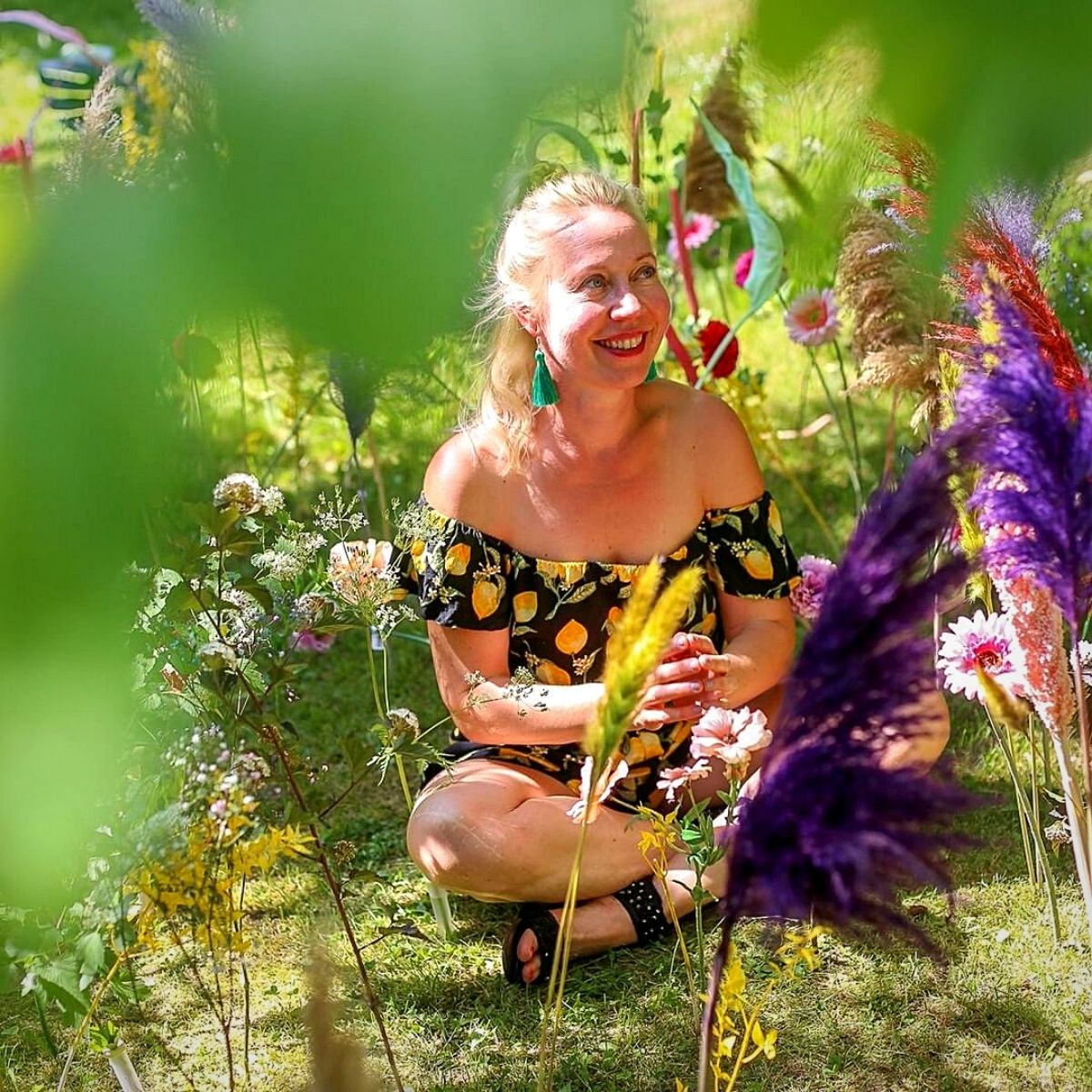
The act of giving and receiving flowers strengthens emotional connections between individuals and fosters a sense of closeness.
Flowers and Plants as Tokens of Affection
Throughout history, flowers have served as tokens of love, gratitude, and sympathy. Gifting flowers to loved ones can strengthen social bonds, improve relationships, and create lasting memories.
Whether it's a bouquet on Valentine's Day or any other special day, giving a simple flower picked from a garden is a gesture that speaks volumes about one’s feelings and deepens connections with others.

Flowers In Celebrations and Rituals
Flowers and plants often play prominent roles in various celebrations and rituals across cultures. From weddings to funerals, festivals to religious ceremonies, flowers are used as decorations and offerings, improving the emotional significance of these events. They bring people together, creating shared experiences and strengthening social bonds.
Shared Gardening Experiences and Activities
Gardening, especially in community gardens, is a social activity that brings people together to nurture and cultivate plants collectively.
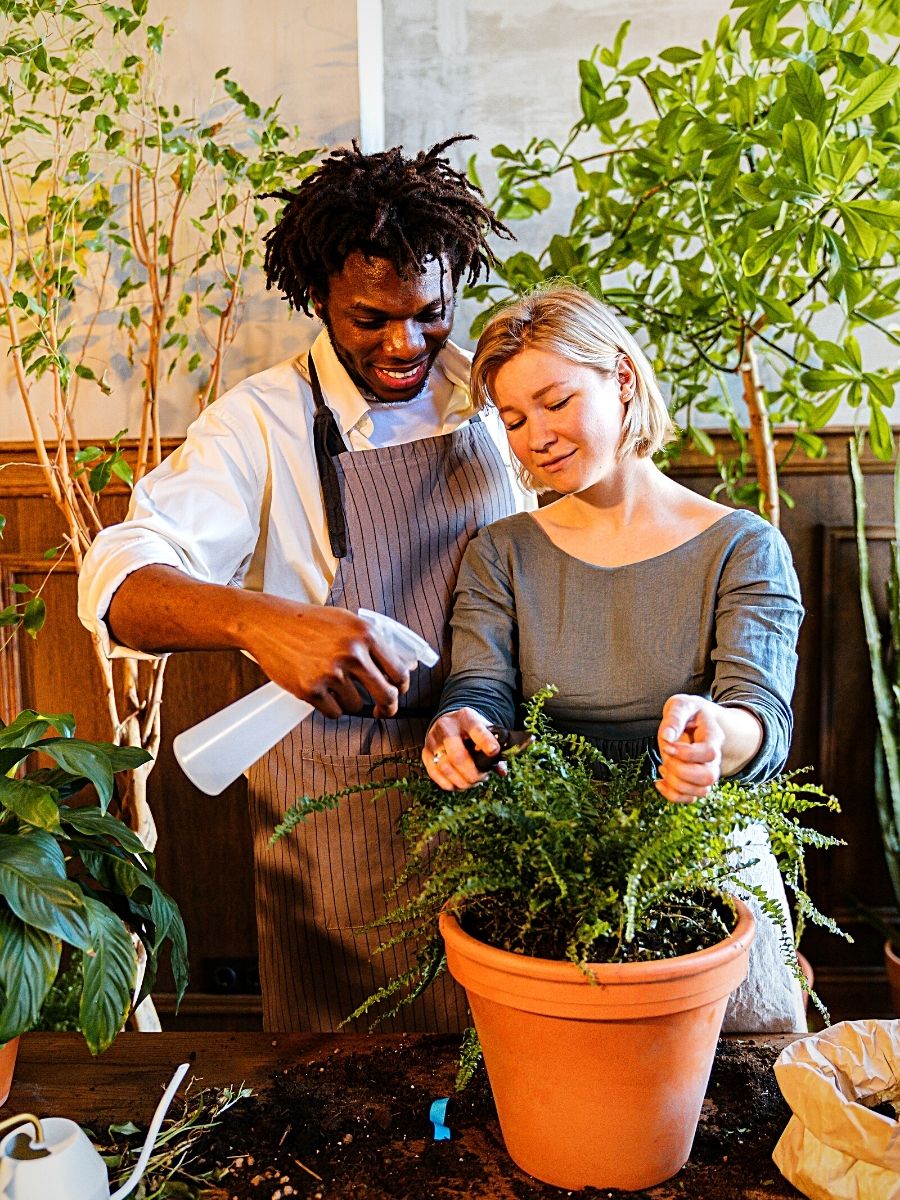
Working side by side in the garden promotes teamwork, cooperation, and communication, leading to the development of stronger social bonds within the community.
Community gardens, in particular, offer a unique opportunity for people to come together, connect with nature, and build a sense of community. Gardening in a shared space fosters teamwork, communication, and collective responsibility for nurturing the plants. These green oases become intersections for social interaction, encouraging happiness and a sense of belonging.
Read more about how gardening and plant care can help improve your mental health, and how this can reduce stress, increase mindfulness, and foster this connection with nature.
Natural Conversation Starters
Flowers and plants serve as natural conversation starters. They break the ice and provide common topics for discussion.
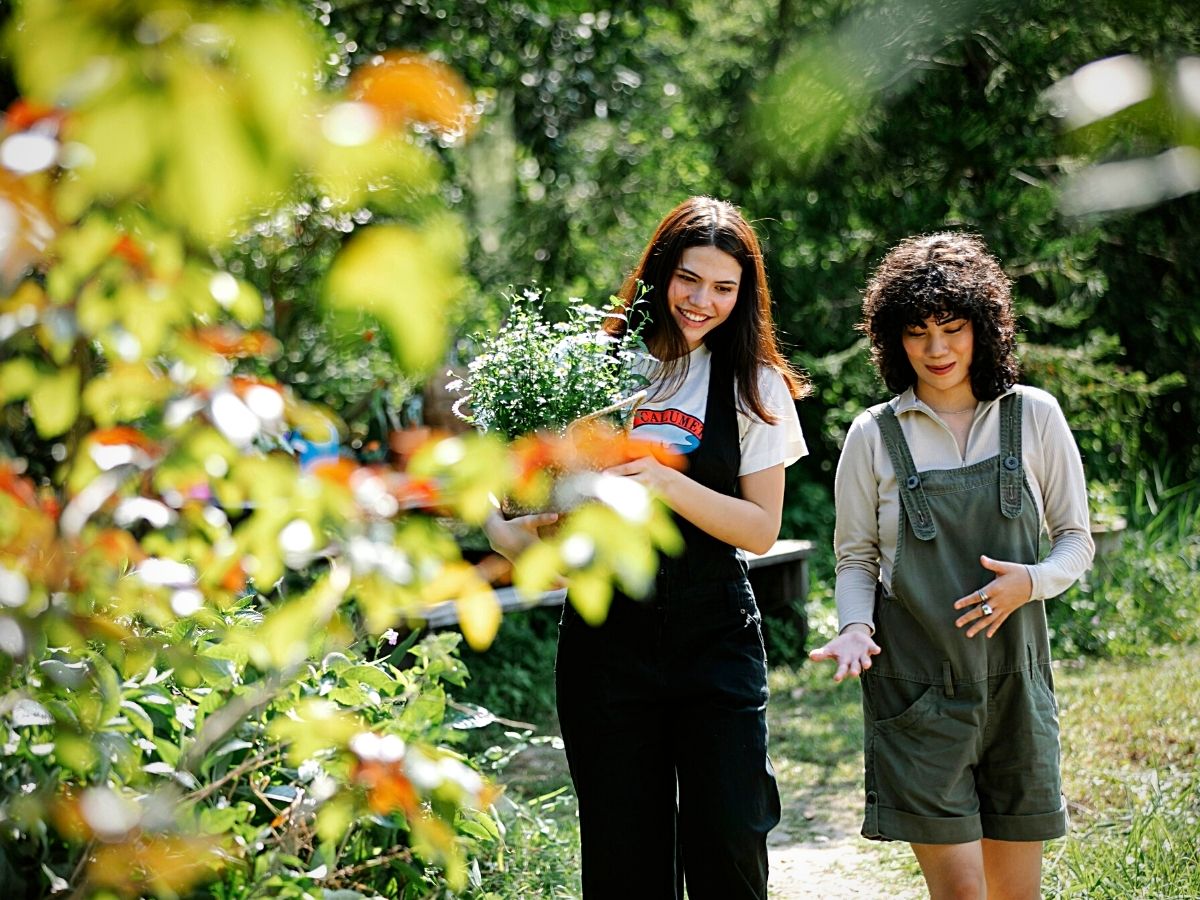
Think of admiring the beauty of a flower arrangement or discussing gardening tips. These are shared interests that facilitate meaningful connections between individuals.
Decoration and Home Environment
Indoor plants and flowers can create a warm and welcoming atmosphere in homes and workplaces. When people visit a space adorned with plants and flowers, it can make them feel more comfortable and at ease.
This is a factor that encourages social interaction and fosters a positive environment for communication between different individuals within that environment.
It's been proven in these 7 science-backed health benefits of plants at home that plants don't just look good, they make us feel good too. And when you're thinking of getting some new plants, why not pick one of these from the top 10 healthy houseplants, as suggested by the Clean Air Studies conducted by NASA.
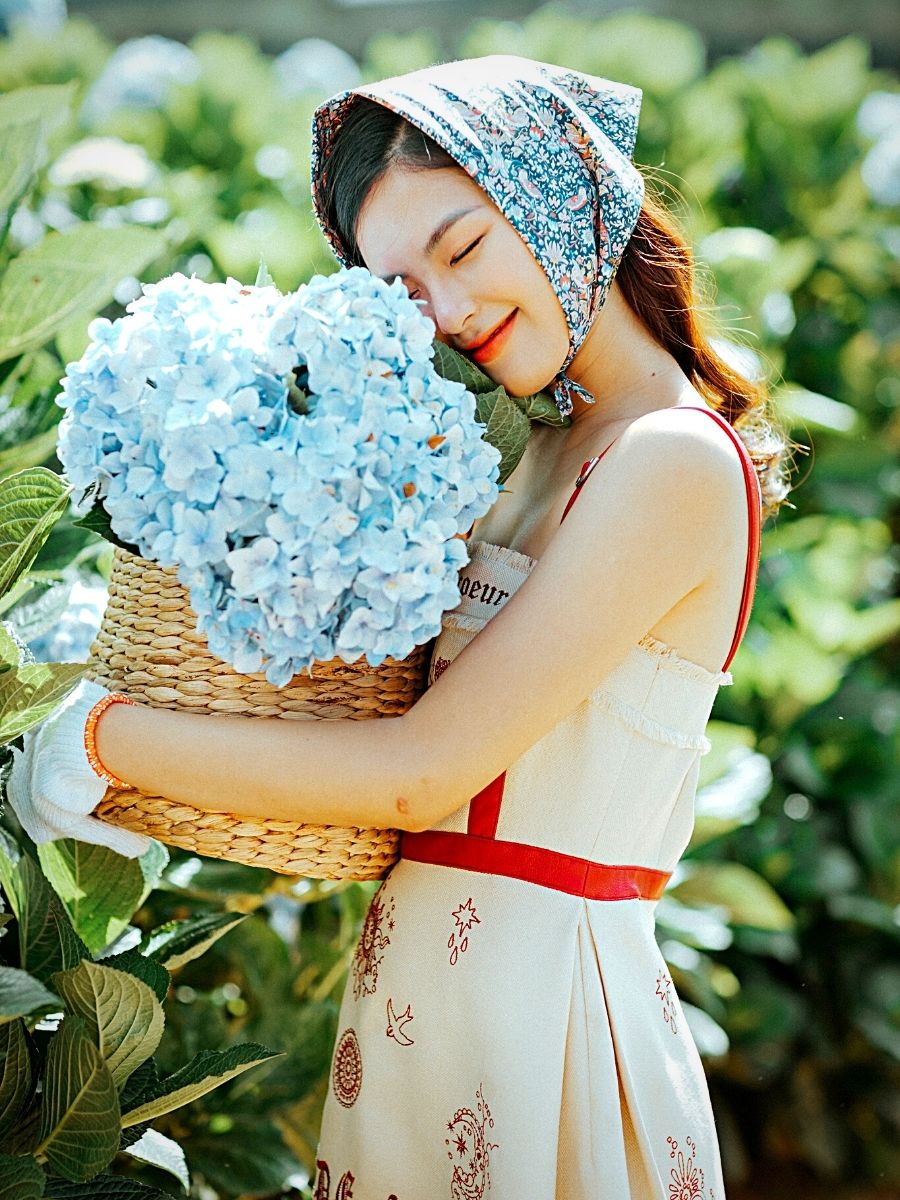
Symbolism and Cultural Significance
Different flowers and plants hold cultural symbolism and significance. For example, the rose is often associated with love, while the lotus holds spiritual and purity connotations in various cultures.
These shared symbolic meanings further reinforce the social bonds and cultural connections among different people who come from different societal heritages and backgrounds.
Volunteering and Environmental Activism
Flowers and plants need to be conserved and protected. Involvement in environmental initiatives and plant-related volunteering activities can bring individuals together who share a passion for nature and the environment.
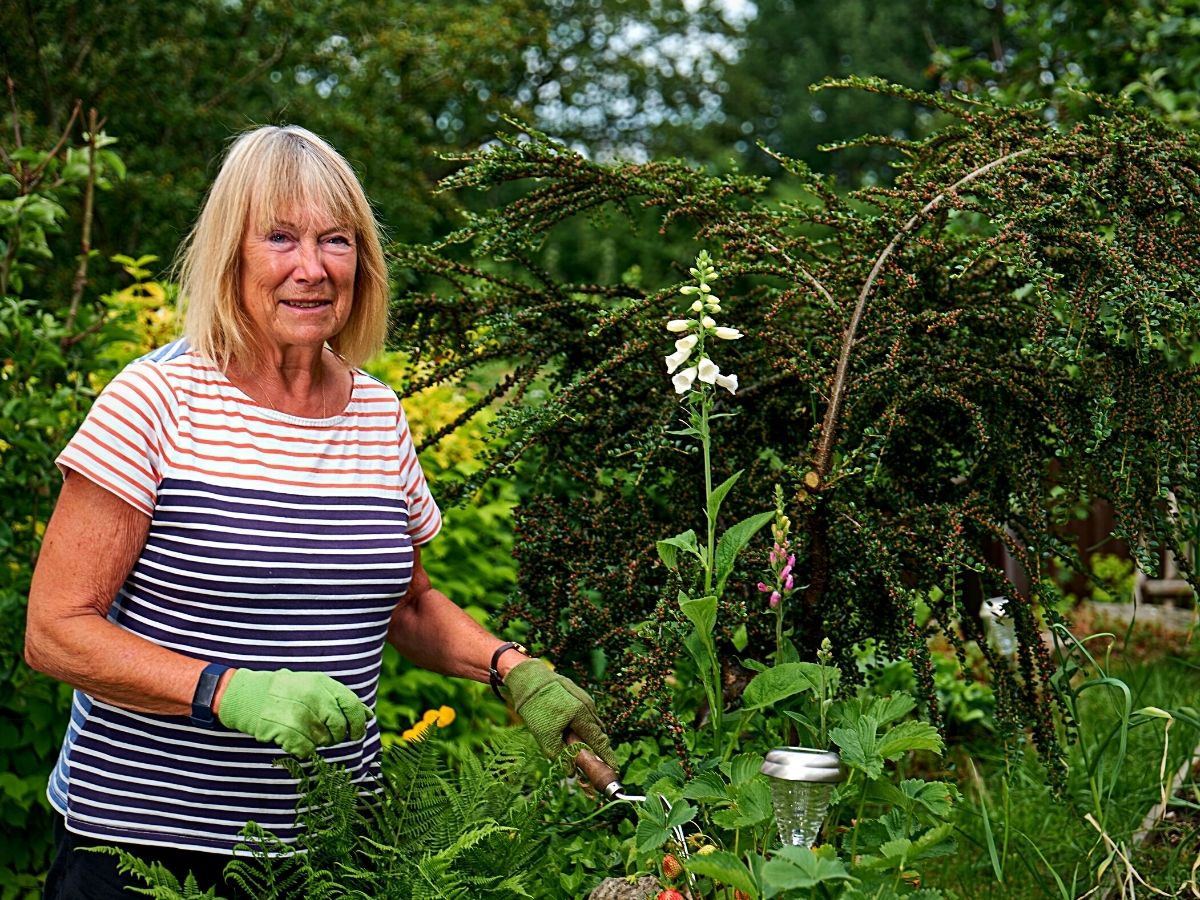
Partaking in such activities in togetherness not only promotes a sense of camaraderie but also strengthens the collective commitment to environmental stewardship.
Go Ahead, Incorporate Flowers Into Your Everyday Living
With their vibrant colors and therapeutic effects, without a doubt, flowers and plants have a significant impact on happiness and well-being.
The power of nature nurtures a more cheerful and fulfilling existence as it encourages the cherishing of the little moments of awe and beauty that surround us every day, and which would otherwise pass unnoticed.

So, how about you incorporate the beauty and appeal of plants and flowers into your daily living and activities for a more fulfilling, serene, and contented being? You will not regret it.
Featured image by @ssammvalencia, header image @rocknroamgirl.

